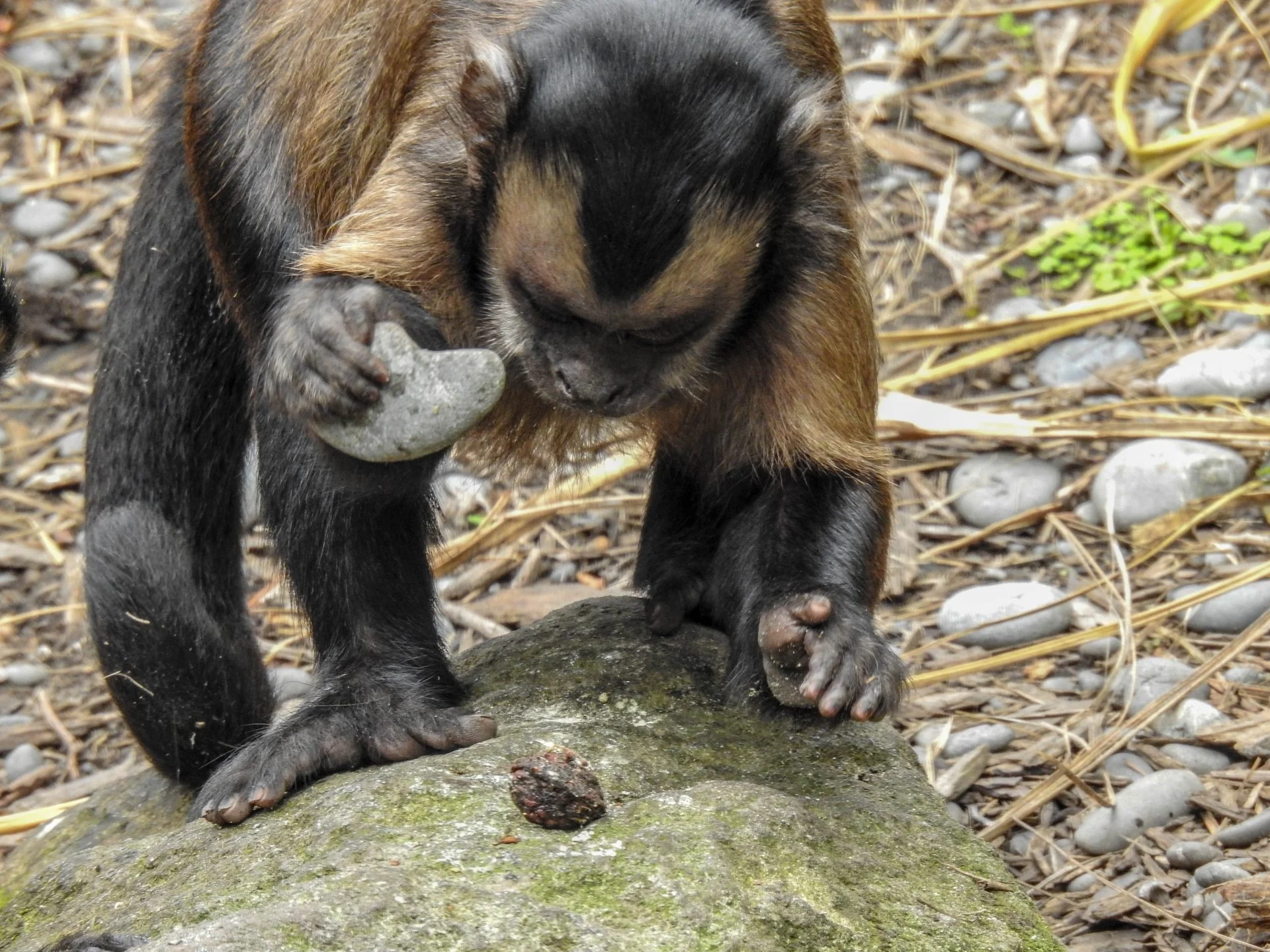50,000-year-old stone tools found in Pedra Furada, located in the state of Piauí in north-eastern Brazil were made by monkeys.
Pedra Furada is collection of over 800 archaeological sites, where hundreds of rock paintings dating from 12,000-years-ago have been discovered, along with charcoal from very ancient fires and stone shards that may be interpreted as tools, which have been dated to up to 50,000-years-ago.
The tools were originally attributed to ancient humans prior to the arrival of the Clovis people in North America, but according to a new paper published in the journal, The Holocene, the tools were made by capuchin monkeys.
Capuchin monkeys are New World monkeys of the subfamily Cebinae, found in the tropical forests in Central America and South America, and as far south as northern Argentina.
Capuchin monkeys are considered to be the most intelligent New World monkey, where they have often been observed by researchers using river stones to crack open palm nuts on large flat builders.
Archaeologist, Agustín Agnolín, from the National Institute of Anthropology and Latin American Thought (INAPL) and CONICET, working with palaeontologist, Federico Agnolín, from the Azara Foundation and the Argentine Museum of Natural Sciences, compared the stone tools from Pedra Furada, and other Pleistocene archaeological sites in Brazil such as Sitio do Meio, Vale da Pedra Furada, and Toca da Tira Peia, with modern capuchin-made stone tool deposits.
The researchers found that tools from the Pleistocene sites such as Pedra Furada are consistent with the capuchin-made lithic deposits, created by repeated impacts between a boulder and a flat quartzite surface.
In conclusion, the researchers said: “We are confident that the early archaeological sites from Brazil may not be human-derived, but instead may belong to capuchin monkeys.”
https://doi.org/10.1177/0959683622113170
Header Image Credit : Shutterstock





